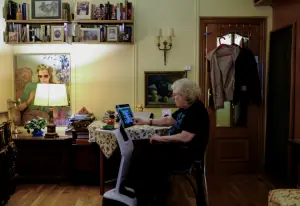Aussie start-up using spider venom to treat heart attacks
2 min readSYDNEY: A team of drug researchers from the University of Queensland (UQ) have developed a new heart attack treatment made from deadly spider venom and are now looking to bring the lifesaving treatment to market through a local start-up.
The team said on Wednesday that the drug candidate was one step closer to human trials after Brisbane start-up Infensa Bioscience received 23 million Australian dollars (15.6 million U.S. dollars) of initial funding from private investors.
UQ Principal Research Fellow, and Infensa CEO Associate Professor Mark Smythe said this would be the first drug worldwide that would have the ability to prevent irreversible cell damage caused by a heart attack or stroke.
“The heart can’t regenerate muscle cells that die during a heart attack, which is why these injuries cause permanent damage and can lead to heart failure, disability and reduced quality of life.”
The drug candidate comes from the venom of one of Australia’s most venomous spiders, the K’gari funnel web spider. IB001, the current name of the drug, works by blocking the signal the body sends that causes heart cells to die during a heart attack or a stroke.
Now, with the new seed money at Infensa Bioscience the candidate is poised to enter into phase 1 clinical trials in the Australian state of Queensland next year.
The treatment would be particularly useful for treating patients in Australia’s rural areas, who may experience a stroke or a heart attack in locations hours away from the nearest hospital.
“This is a drug that could be given really at the earliest point when a first responder meets a patient who might be having a heart attack or a stroke,” added contributing UQ researcher Nathan Palpant.
“(Currently) doctors don’t have any drugs to prevent these injuries from happening in the first place.”
The company is also looking at raising funds to expand the use of the drug to extend the life of donor hearts used for organ transplants.
For the latest news, follow us on Twitter @Aaj_Urdu. We are also on Facebook, Instagram and YouTube.


























Comments are closed on this story.